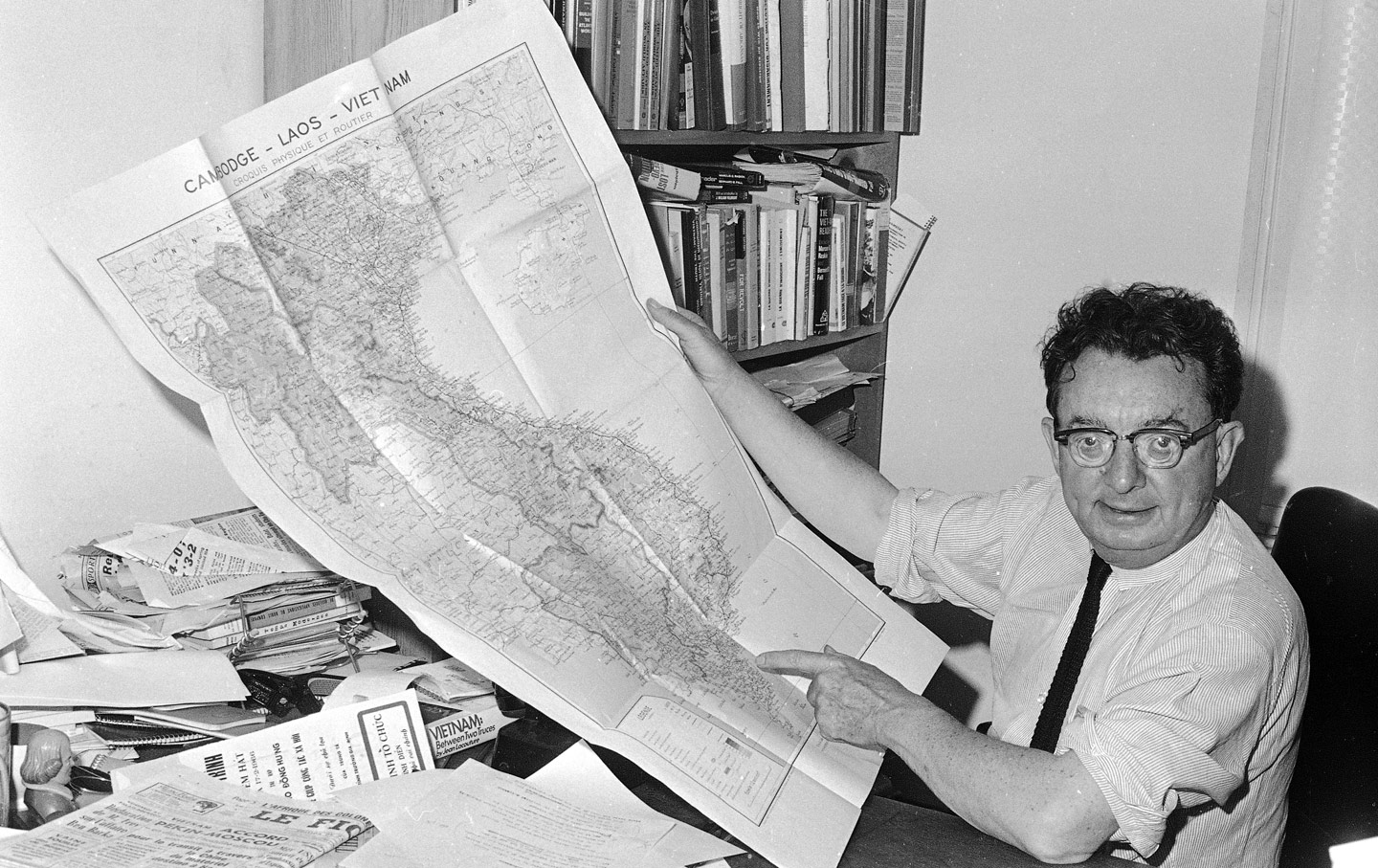
Although a radical pariah for most of his career, towards the end of his life America’s greatest investigative journalist, I.F. Stone, had become a kind of liberal talisman—a cuddly curmudgeon whose coke bottle glasses and wrinkly venerability made him safe for mainstream admiration. Because I.F. Stone’s Weekly—the one-man, four-page newsletter he published himself, exposing White House lies and Pentagon prevarications—was run out of his Washington basement, nowadays Stone is often called “the first blogger.” As his biographer, it’s a label I’ve always resisted, pointing out that Stone made a good living from his work, supporting a wife and three children thanks to thousands of subscribers who paid to read what he had to say. And though I’m often asked “What would Izzy have thought?” about various contemporary political phenomena, from the Tea Party to the rise of Hugo Chávez, in most cases the only honest answer is “Why don’t you break out the Ouija board and ask him yourself?”
But I.F. Stone would have loved WikiLeaks. This is, after all, the man who wrote: “Nothing makes life more interesting than outwitting censorship.” Julian Assange was still a teenage hacker when Stone died in June 1989, and the WikiLeaks founder’s motives and early influences are as much of a mystery as his personal life. But what WikiLeaks has achieved, in a remarkably short space of time, is nothing less than the Holy Grail of muckrakers from Ida Tarbell to I.F. Stone. Perhaps Upton Sinclair, whose novel The Brass Check was a pioneering exposé of media self-censorship, put it best: if a journalist could only “succeed in his efforts to make the people believe what ‘everybody knows’—then he will be recognized in future as a benefactor of his race.”
Surely the most salient point about WikiLeaks’s Cablegate “revelations” is precisely how little truly shocking material they contain. Is anyone in range of a daily newspaper—let alone Nation readers—really surprised to learn that the Sunni fundamentalists in charge of Saudi Arabia’s medieval theocracy regard the Shiite fundamentalists who rule Iran as a greater threat than Israel (even when the government there isn’t beholden to Jewish fundamentalists)? That the Vatican bent every sinew to keep Turkey out of the European Union? And that the spare to the British throne inherited his father’s talent for putting his royal foot in his royal mouth? Or—today’s fresh revelation—that the Dublin government regards Sinn Fein’s Gerry Adams as a former leader of the IRA?
Which is not to say WikiLeaks hasn’t had an impact. From the moment back in April when “Collateral Murder“—the irrefutable video evidence that US forces callously fired on Iraqi civilians and journalists—was first released, the gap between the war as shown on television or in optimistic White House briefings and the reality on the ground has been made appallingly clear. The Afghan War Diary, released in July, perform a similarly demystifying function on that conflict.
The impact elsewhere in the world has if anything been even more profound, with serious scoops on political corruption in Kenya and Peru and financial chicanery from the Cayman Islands to the Icelandic Kaupthing Bank.
But it is also worth remembering what hasn’t happened. As one blogger pointed out, the initial AP coverage of the Afghan War Diaries contained what Izzy used to call a shirttail—”little paragraphs following the paper’s own story. They hang down at the end like a shirttail.” This one blandly reported: “The WikiLeaks leak is unrivaled in its scope, but so far there is no evidence that any Afghans named in the leaked documents as defectors or informants from the Taliban insurgency have been harmed in retaliation.”
Hillary Clinton may not like it, but when Stone observed “the State Dept. is constantly leaking material to favored reporters” back in 1945 (!) he wasn’t breaking news either. Reminding Nation readers that “letting ‘confidential’ information leak out” is “the favorite Washington pastime,” he cautioned: “If this is a crime, all but a hopelessly inefficient minority of Washington officials and newspapermen ought to be put in jail.”
At least for this avid reader one of few genuine revelations of the current disclosures is the intelligence and professionalism of the career foreign service officers who wrote the leaked documents. Though their impact on policy seems slight, the men and women who are supposed to be America’s eyes and ears around the world seem commendably wide awake. Now the rest of us can be, too.
Even democracies need to keep some things secret. When the Progressive published Howard Morland’s article revealing the “secret of the H-Bomb” in 1979, Izzy was appalled. But as he famously observed, “All governments lie, but disaster lies in wait for countries whose officials smoke the same hashish they give out.” The only effective antiseptic for official mendacity is exposure.
While Stone cherished his iconoclast’s independence, joking that “establishment reporters undoubtedly know a lot that I don’t know. But a lot of what they know isn’t true,” he also felt that, in standing up the Nixon administration and printing the Pentagon Papers, the Washington Post and the New York Times had vindicated the honor of his profession. I have no doubt he would feel the same debt to the editors of today’s Times, the Guardian, Der Spiegel, Le Monde and El País. “To suppress the truth in the name of national security is the surest way to undermine what we claim to be preserving,” he wrote in 1966. “There is a is a Latin legal maxim—justitia fiat, ruat coelum: Let justice be done though the heavens fall. I would paraphrase it for newspapermen and say: Let the truth be told as we see it though officials claim the disclosure would cause the heavens to collapse upon them.


